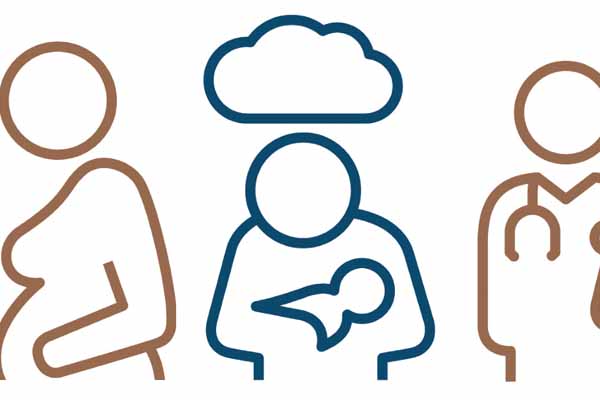
The Texas Medical Association recently advised state policymakers on two big upcoming events that will affect millions of Texans relying on Medicaid – and the physicians who treat them.
The first event is the implementation of a pair of bills passed in the 2021 legislative session. The second is the eventual end of the COVID-19 public health emergency (PHE).
In 2021, the Texas Legislature – with backing from TMA – approved House Bill 133, which extended Texas Medicaid postpartum coverage from two months to six months. TMA also supported lawmakers’ passage of House Bill 2658, which affects the administration and operation of the Medicaid managed care program, including extending continuous Medicaid eligibility to children.
Neither bill has been implemented yet, and members of the Texas House Committee on Human Services received written testimony from TMA – and five other Texas physician groups – about how both bills would be best put into effect. The Texas House is studying possible access-to-care improvements for consideration during the legislative session that will begin in January 2023.
Implementation of both bills will be directly affected by the expiration of the PHE, which is expected later this year, says Helen Kent Davis, TMA’s associate vice president of governmental affairs.
For instance, the ongoing emergency extends postpartum Medicaid coverage for 12 months. That means even though HB 133 improves the state’s coverage of women postpartum from two to six months, Texas women on Medicaid will actually lose six months of coverage postpartum once the emergency declaration expires, she says.
TMA’s testimony suggests a way to remedy that. To implement HB 133, Texas already has to file an amendment to its Medicaid 1115 Transformation Waiver, which funds many of the state’s safety net programs. As part of that amendment, TMA recommended the state request 12 months of Medicaid coverage. Several other states – including Florida, Georgia, Louisiana, North Carolina, Ohio, South Carolina, Tennessee, and Utah – are pursuing similar waiver efforts, the testimony states.
For women who do lose their postpartum Medicaid coverage, TMA also suggested that the 1115 waiver amendment include a provision allowing them to automatically enroll in the state’s Healthy Texas Women program. While not as comprehensive as Medicaid, Healthy Texas Women provides basic preventive and primary care services, including well-woman exams, screenings for chronic diseases such as diabetes, and early detection of breast and cervical cancer.
“Making the transition seamless will help increase access to timely, regular, and cost-effective preventive care, saving lives and dollars,” TMA wrote.
Texas ranks last among the 50 states in access to high-quality health care for prenatal and maternal care, according to ValuePenguin, a business analysis organization.
TMA’s testimony on HB 2658 focused in part on keeping families eligible for Medicaid and other health care programs. The testimony noted that “children, postpartum women, and others enrolled in Medicaid on or after March 18, 2020, have benefitted from uninterrupted coverage [because of the PHE]. But when the PHE expires later this year, families will need to [redetermine] eligibility.”
Following advocacy by the American Medical Association, American Hospital Association, and other national groups, the Biden administration has indicated it will renew the public health emergency beyond July 15, most likely for another 90 days, thus extending the Medicaid continuous eligibility with it, Ms. Davis says.
But once the redetermination process begins, it may inadvertently leave many current Medicaid recipients without benefits, Ms. Davis says. The Texas Health and Human Services Commission estimates at least 3.7 million Texans will be impacted by the process. The Centers for Medicare & Medicaid Services has given states 14 months to complete redetermination, but Texas has announced it will attempt to complete the process in eight months.
That deadline may be difficult for the state to meet without leaving some eligible Medicaid recipients without coverage, Ms. Davis says. For instance, most of the children who enrolled in Medicaid during the PHE will still be eligible after it expires based on their income. But redetermining so many people so quickly may present problems because the state already has a shortage of workers trained to evaluate eligibility. There also are potential technical difficulties, she says.
“Families can update their information online, but if you’ve forgotten your password, you have to call 211 [the state’s social service hotline], and there’s a wait for that,” she said. “So, there’s the bottleneck of people trying to get redetermined and too few resources to make it happen.”
Because of those challenges, physicians should encourage Medicaid enrollees to complete the redetermination process as early as possible, Ms. Davis says.
TMA’s testimony also called for the swift implementation of provisions in HB 2658 that provide for continuous Medicaid eligibility for children and establish preventive dental benefits for some adults.
TMA submitted the testimony with the American College of Obstetricians and Gynecologists District XI (Texas), the Texas Chapter of the American College of Physicians Services, the Texas Academy of Family Physicians, the Texas Association of Obstetricians and Gynecologists, and the Texas Pediatric Society.
The same six organizations also sent a letter to the federal coordinator for the 1115 waiver supporting Texas’ efforts to amend it and restating the organizations’ commitment to improving postpartum coverage for women.